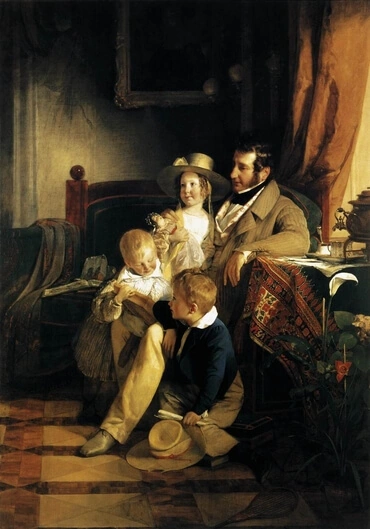1
Po šių įvykių Viešpats prabilo į Abromą regėjime: “Nebijok, Abromai! Aš esu tavo skydas ir labai didelis atlygis!”
2
Abromas tarė: “Viešpatie Dieve! Ką Tu man duosi? Aš neturiu vaikų, mano namų paveldėtojas bus damaskietis Eliezeras.
3
Man nedavei vaikų, ir štai tarnas, gimęs mano namuose, yra mano įpėdinis”.
4
Viešpats atsakė jam: “Ne šitas bus tavo paveldėtojas, bet tas, kuris gims iš tavęs”.
5
Ir, išvedęs jį laukan, tarė: “Pažvelk į dangų ir, jei gali, suskaičiuok žvaigždes! Tiek bus tavo palikuonių!”
6
Abromas patikėjo Dievu, ir tai jam buvo įskaityta teisumu.
7
Dievas kalbėjo: “Aš esu Viešpats, kuris tave išvedžiau iš Chaldėjos miesto Ūro, kad tu paveldėtum šitą šalį”.
8
Abromas tarė: “Viešpatie Dieve! Iš kur galiu žinoti, kad ją paveldėsiu?”
9
Tada Jis tarė jam: “Atvesk man trejų metų karvę, trejų metų ožką, trejų metų aviną, balandį ir jauną karvelį”.
10
Abromas, atvedęs visus gyvulius, padalino pusiau ir padėjo kiekvieną gabalą vienas prieš kitą, tačiau paukščių nedalino.
11
Plėšrieji paukščiai atskrido prie mėsos, bet Abromas juos nubaidė.
12
Saulei leidžiantis, gilus miegas apėmė Abromą, siaubas ir didelė tamsa jį apėmė.
13
Tada Viešpats tarė Abromui: “Žinok, kad tavo palikuonys bus ateiviai svetimame krašte, jie vergaus ir bus spaudžiami keturis šimtus metų.
14
Tautą, kuriai jie vergaus, Aš teisiu, ir tada jie iš ten išeis su dideliu turtu.
15
O tu ramybėje nueisi pas savo tėvus ir būsi palaidotas, sulaukęs žilos senatvės.
16
Ketvirtoji karta sugrįš čia, nes amoritų nusikaltimų saikas dar nėra pilnas”.
17
Nusileidus saulei ir sutemus, štai pasirodė rūkstanti krosnis ir liepsnojantis deglas ir praėjo tarp tų mėsos gabalų.
18
Tą dieną Viešpats padarė su Abromu sandorą, sakydamas: “Tavo palikuonims atidaviau visą žemę nuo Egipto upės iki didžiosios Eufrato upės:
19
kenitus, kenazus, kadmonitus,
20
hetitus, perizus, refajus,
21
amoritus, kanaaniečius, girgašus ir jebusiečius”.







